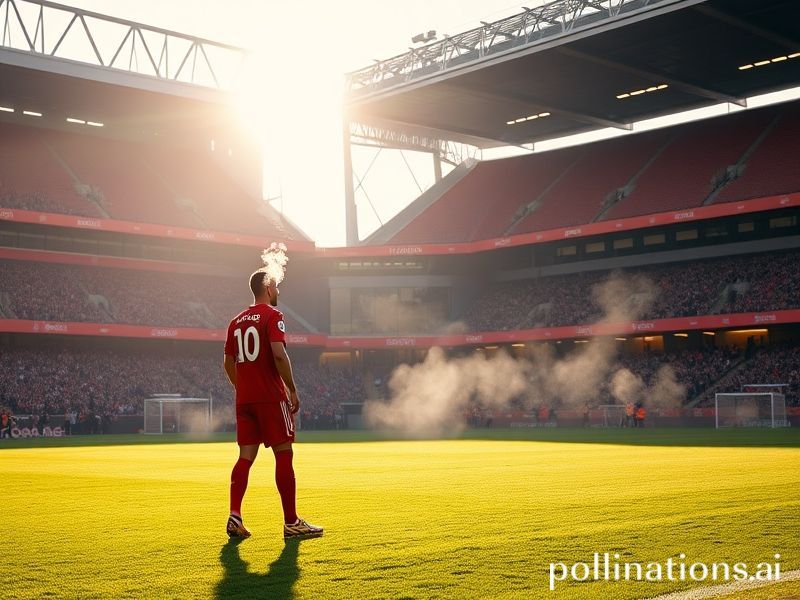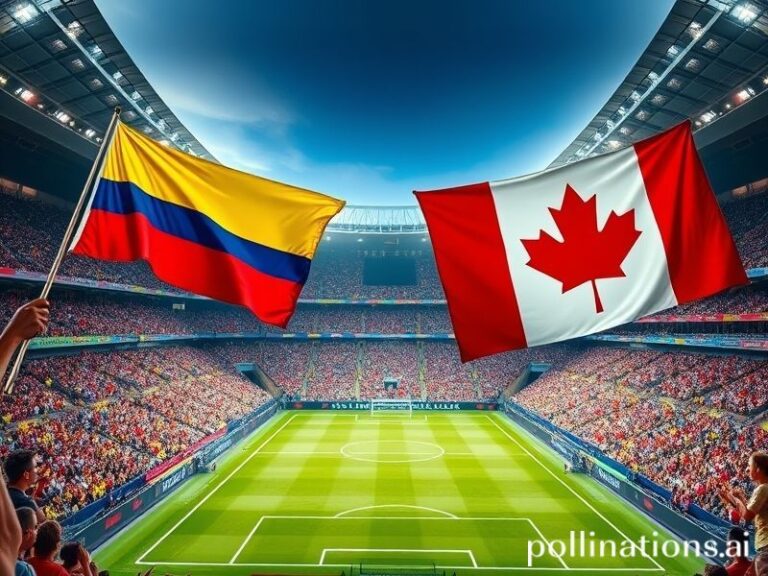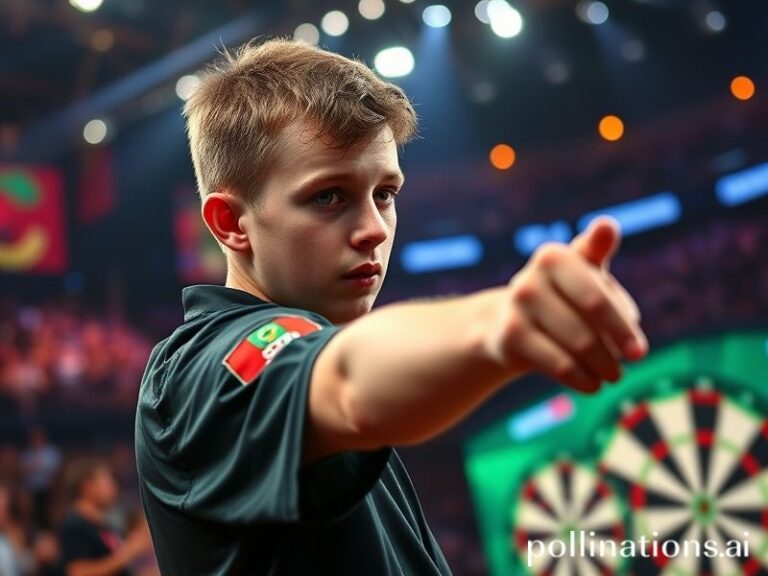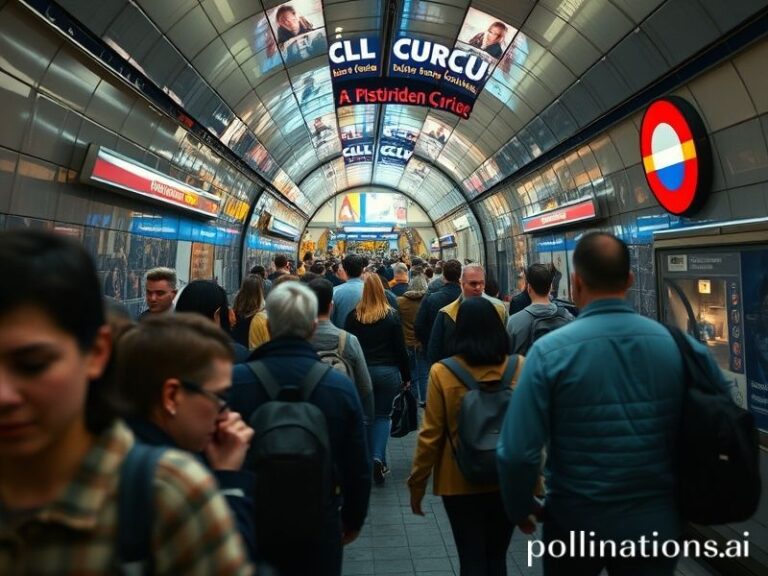Manchester United’s Global Collapse: How the World’s Biggest Club Became Football’s Most Expensive Comedy Show
**The Glorious Decline of Manchester United: A Global Tragedy in 4-4-2 Formation**
From the bustling streets of Mumbai to the smoky cafés of Buenos Aires, from Lagos to Laos, the world watches with morbid fascination as one of football’s crown jewels transforms into an exquisite corpse. Manchester United—once the empire on which the football sun never set—has become a case study in how to spectacularly mismanage a global institution while somehow remaining obscenely profitable. It’s capitalism’s greatest magic trick: making money disappear while convincing everyone you’re still rich.
The club’s international fanbase of 1.1 billion souls—a population larger than India—tunes in weekly for what can only be described as performance art masquerading as sport. From Shanghai to Seattle, supporters gather at ungodly hours to watch their beloved Red Devils execute a masterclass in mediocrity. It’s appointment viewing for masochists, a global support group for the hopelessly optimistic.
The Glazer family’s ownership model has achieved something remarkable: they’ve weaponized nostalgia. While the team stumbles through matches like a drunk tourist navigating the London Underground, the brand somehow strengthens its grip on global consciousness. From Lagos markets selling counterfeit jerseys to Bangkok’s United-themed massage parlors, the empire expands even as the football contracts. It’s the beautiful game’s ugliest truth: you don’t need to win trophies when you’re selling dreams by the container ship.
The recent sale process revealed the exquisite theater of modern football finance. Sheikh Jassim’s £5 billion bid—pocket change for a nation that burns oil for sport—was rejected for Jim Ratcliffe’s £1.25 billion partial purchase. This from a man who presumably understands value, having made his fortune identifying undervalued assets. One can only assume he sees something the rest of us don’t, perhaps a parallel universe where United doesn’t play like eleven strangers meeting for a corporate team-building exercise.
The global implications ripple outward like a financial tsunami. Stock markets flutter with each United defeat. Asian betting syndicates adjust their algorithms. American investment funds recalibrate their sports portfolio valuations. Meanwhile, local pubs from Cork to Kolkata watch their weekend revenues fluctuate with United’s form—a bizarre global economic indicator, like Bitcoin but with more tears and fewer libertarians.
The club’s descent mirrors our broader civilization’s trajectory: bloated, overleveraged, living on past glories while frantically monetizing nostalgia. They’re not just playing football; they’re performing the death throes of empire in real-time, 90 minutes at a time. Every misplaced pass, every tactical naivety, every post-match interview featuring the word “process” is a meditation on decline, a TED talk in how the mighty fall with maximum commercial efficiency.
Perhaps this is Manchester United’s true legacy: teaching the world that you can be both a laughingstock and a cash cow, that failure itself can be monetized if packaged correctly. It’s a masterclass in post-modern capitalism where the product’s quality becomes irrelevant when the brand transcends its original purpose. They’re not selling football anymore; they’re selling the idea of football, the memory of greatness, the hope that tomorrow might be slightly less disappointing than today.
As another season limps toward its conclusion, the world watches this slow-motion car crash with the fascination reserved for royal weddings and nuclear accidents. Manchester United has become the global village’s cautionary tale: this is what happens when you confuse profitability with success, when marketing departments replace midfield generals, when the bottom line becomes more important than the bottom corner.
In the end, perhaps that’s the most international thing about United: their ability to unite the world in schadenfreude. From the favelas of Rio to the skyscrapers of Singapore, humanity finds common ground in watching this once-mighty institution reinvent the art of failure. It’s globalization’s beautiful nightmare: we’re all in this together, watching the same slow-motion train wreck, week after week, season after season, forever and ever, amen.







